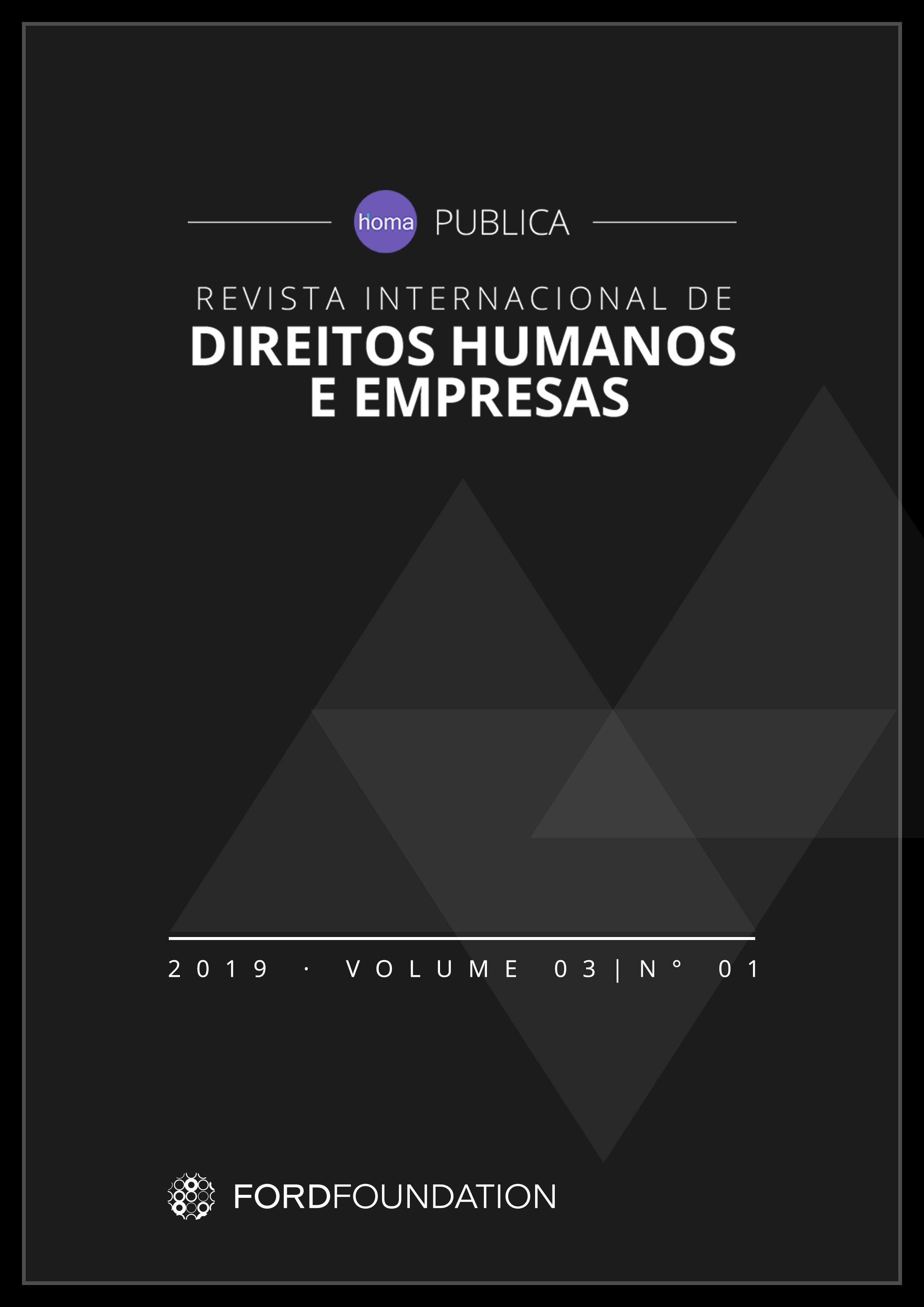In search of viable standards of culpability for corporate complicity liability in human rights abuses
Publicado 2019-01-31
Palabras clave
- Complicity and human rights,
- Due diligence,
- Actus reus and mens rea,
- Business and Human Rights,
- Aiding and abetting
Cómo citar
Resumen
This paper aims to explore the appropriate and viable standards of actus reus and mens rea to hold corporations liable for complicity in human rights abuses and to clarify the implications of these standards in the context of the UN ‘Protect-respect-remedy’ Framework and Guiding Principles on Business and Human Rights. As the appropriate standards remains in contention, this paper argues that the “substantial effect” and “knowledge” standards constitute the most appropriate and viable standards of the actus reus and mens rea for corporate complicity liability in human rights abuses. Furthermore, these standards are apt to the Framework and Guiding Principles, which require corporations to exercise due diligence to avoid and address complicity issues through concrete acts of “knowing and showing”.
Descargas
Citas
AMBOS, Kai. General Principle of Criminal Law in Rome Statute. 10 CRIM. L. F. 1, 10 . 1999.
BADAR, Mohamed. The Concept of Mens Rea in International Criminal Law: The Case for A Unified Approach. UK: Hart Publishing, 2013.
BADAR, Mohamed. The Mental Element in the Rome Statute of the International Criminal Court: A Commentary from A Comparative Criminal Law Perspective. Criminal Law Forum 19(3/4). 2008.
FINNIN, Sarah. Elements of Accessory Mrdes Liability: Article 25(3)(b) and (c) of the rome Statute of International Criminal Court, Leiden. Boston: Martinus Nijhoff, 2012.
INTERNATIONAL COMMISSION OF JURISTS. Corporate Complicity & Legal Accountability, Volume 3: Civil Remedies, 10 . Geneva: 2008.
KYRIAKAKIS, Joanna. Justice after War: Economic Actors, Economic Crimes, and the Moral Imperative for Accountability after War. In Lary, May and Forcehimes, Andrew T. (eds.). Morality, Just Post Belum, and International Law. Cambridge: Cambridge University Press, 2012. at 115.
O’KEEFE, Toger. International Criminal Law. Oxford: Oxford University Press, 2015.
PLOMP, Caspar. Aiding and Abetting: The Responsibility of Business Leaders under the Rome Statute of the International Criminal Court. 30(79) Ultrecet Journal of International and European Law 4. 2012.
RAMSEY, Michael D. International Law Limits on Investor Liability in Human Rights Litigation. 50 HARV. INh’L L.J. 271. 2009.
RUGGIE, John. Business and Human Rights: Further Steps hrward the Operationalization of the ‘Protect, Respect and Remedy’ Framework, A/HRC/14/27. 9 April 2010.
RUGGIE, John. Business and Human Rights: hrwards Operationalizing the ‘Protect, Respect and Remedy’ Framework, A/HRC/11/13. 22 April 2009.
RUGGIE, John. Clarifying the Concepts of “Speere rf influence” and “Complicity”, A/HRC/8/16. 15 May 2008.
RUGGIE, John. Protect, Respect and Remedy: a Framework for Business and Human Rights, A/HRC/8/5. 7 April 2008.
SCARBOROUGH, Philip, A. Rules of Decision for Issues Arising Under the Alien Tort Statute. 107 COLUM. L. REV. 457. 2007.
VAN HO, Tara, L. Transnational Civil and Criminal Litigation. In: MICHALOWSKI, Sabine (ed.). Corporate Accountability in the Context of Transitional Justice. Oxon: Routledge, 2013.

